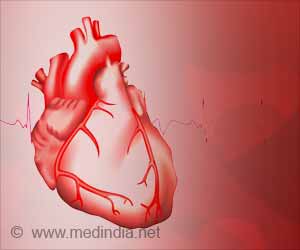
‘Women fare worse than men following aortic heart surgery. A new study highlights that women are twice as likely to experience a stroke or death following surgery.’
Tweet it Now
The study, published in February 2019's sex-themed issue of Circulation, found if you're a woman, you're twice as likely to experience a stroke or death following surgery. More specifically, women are 80 percent more likely to die, 90 percent more likely to experience a stroke, and 40 percent more likely to experience a complication."We controlled for patients' age, weight, pre-operative health, co-morbidities, and when we took all of that into consideration, going into aortic arch surgery, you're slightly less than twice as likely to die if you're a woman," explains Dr. Jennifer Chung, cardiac surgeon and scientist at Peter Munk Cardiac Centre. She is the lead author on the paper.
Dr. Michael Chu, a clinician-scientist at Lawson Health Research Institute and cardiac surgeon at London Health Sciences Centre, says these findings are consistent with other recent findings in cardiovascular medicine that also suggest women experience worse outcomes. Dr. Chu served as the paper's senior investigator.
"Historically, this issue has not been well addressed," Dr. Chu says. "Sex-specific considerations are paramount in cardiovascular medicine, and we investigated this in the largest study to-date, looking at outcomes after thoracic aortic surgery.
"Similar to other areas in cardiovascular medicine, our study suggests women present later in the disease process perhaps with atypical symptoms, like nausea. This may explain the difference in outcome between women and men in emergency situations, when patients experience something like an aortic dissection, or a ruptured aorta.
Advertisement
An aortic dissection is an emergency, and can initially present like a heart attack or a stroke. Symptoms include sudden chest pain, dizziness, nausea, and challenges walking and speaking.
Advertisement
"We have discovered an unfortunate phenomenon that will hopefully lead us down a path of more personalized medicine," she says. "This helps us understand that surgery shouldn't be the same for men and women, and that we must educate ourselves about picking up symptoms in women sooner.
"Our take-home is that we need to do more research."
This paper is an initiative by the Canadian Thoracic Aortic Collaborative (CTAC) and uses nationwide data from almost 1,700 patients who have undergone aortic arch surgery. Data comes from cities across Canada including Victoria, Laval, Toronto - including the Peter Munk Cardiac Centre - Ottawa, Sudbury, Kingston and Winnipeg.
A total of 10 institutions were involved in compiling this data. The CTAC, led by Dr. Chu, is a group of Canadian cardiac surgeons with interests in aortic surgery and work to promote it through a focus on clinical excellence, collaboration and research.
"There shouldn't be an outcome gap between men and women," says Dr. Chung. "We shouldn't accept that women are more 'fragile.' We should work to minimize that gap as much as possible."
Source-Eurekalert









